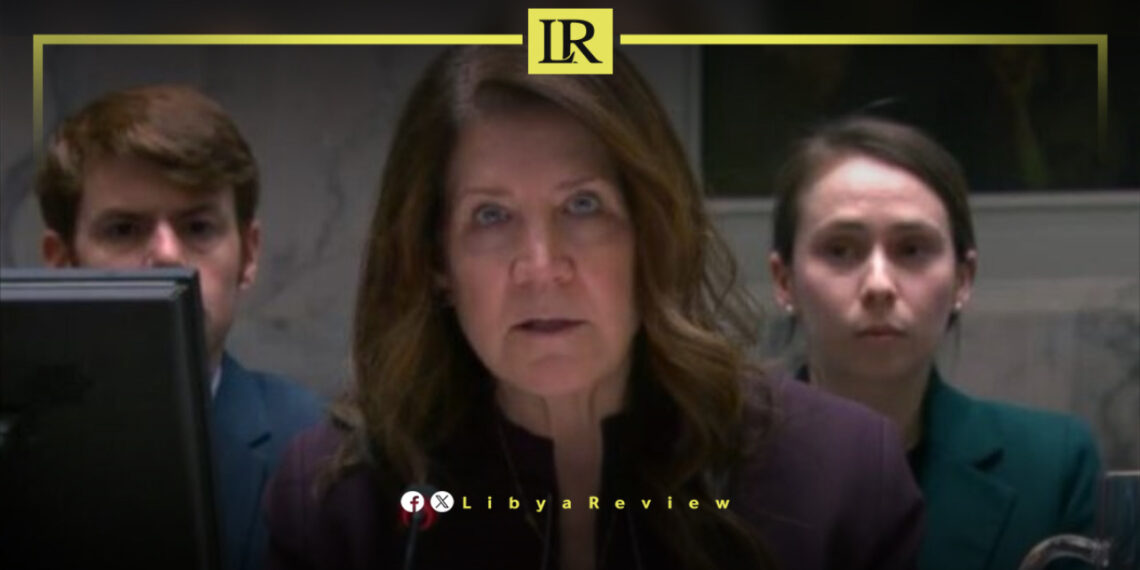On Wednesday, the United States Chargé d’Affaires ad interim to the United Nations, Dorothy Shea, said that Libya has a real chance to unite its institutions and military.
Speaking at a United Nations Security Council meeting, she welcomed recent adjustments to the UN arms embargo, saying they could help Libya take a step toward stability. She urged Libyan leaders to seize this opportunity and push for political and economic reforms.
For over a decade, Libya has struggled with division and conflict. Since the fall of Muammar Gaddafi in 2011, the country has been split between rival governments, armed militias, and foreign interference.
Several political agreements have attempted to unify the country, but progress has been slow. Elections have been postponed, and economic disputes—especially over oil revenues—have fueled tensions.
Shea praised the efforts of the UN Support Mission in Libya (UNSMIL) to break the political deadlock. She highlighted the formation of an advisory committee and the appointment of Ghanaian diplomat Hanna Tetteh to lead UN mediation efforts.
Tetteh’s experience in Sudan and South Sudan, she said, makes her well-prepared for the task. Her deputy, Stephanie Khoury, will also provide critical support.
Military unification remains a priority. Shea emphasized that last month’s modifications to the UN arms embargo offer an opportunity to merge Libya’s eastern and western military forces. A unified army, she argued, is essential for long-term stability and security.
Washington has increased its diplomatic engagement in Libya. A high-level US delegation, including officials from US Africa Command (AFRICOM) and Special Envoy Richard Norland, recently visited the country. Their focus was on maintaining the ceasefire, resolving disputes over the national budget, and ensuring fair distribution of oil revenues.
Economic stability is key to Libya’s future. Shea called on Libyan leaders to agree on a unified national budget, warning that further delays could harm the country’s fragile economy.
She also condemned oil smuggling, which drains Libya’s wealth and benefits a few individuals at the expense of the people. The US welcomed recent UN sanctions against individuals and groups exploiting Libya’s resources for personal gain.
Libya stands at a decisive moment. The US believes the country has a clear path to recovery, but it depends on Libyan leaders taking action. Political reconciliation, economic reform, and military integration must all happen together. The chance for unity is there—if Libya’s leaders are ready to take it.


